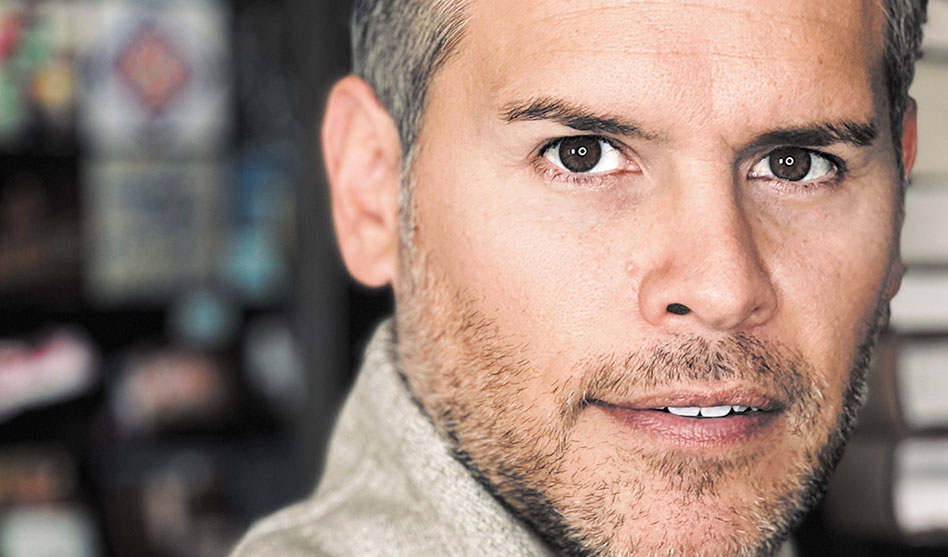 Gus Klein
Gus Klein
Mental health takes the focus in Gus Klein’s debut book
RICH LOPEZ | Staff writer
rich@dallasvoice.com
In the novella Telemetry, a chef’s restaurant burns down, resulting in devastating depression for the main character, Prague Foster. Author Gus Klein’s story is the result of his own struggle with mental health. And if that name sounds familiar, well, it should.
Gus Klein has had quite the path toward this book — a path that included the Dallas Voice.
“It’s certainly been an eclectic one,” Klein said of his journey toward publishing.
“The genesis of this started with the Voice and DVtv,” he said by phone from Los Angeles. Klein was one of the first DVtv hosts when Dallas Voice started its video programming in the mid 2000s. “I started my candle business, and, when I got to California, I started in interior design. But I let it all catch up to me.”
This, he said, is where Telemetry began to take shape. But the seeds began growing even earlier.
The novella has many autobiographical elements: The title character, pushes for healing through prayer with the Hispanic side of himself, while the Anglo part of him stresses more direct forms of recovery. He identifies with the LGBTQ community. And a life changing event slows his momentum.
“It is fiction but inspired by the health journey that I’ve experienced,” Klein said. “So it is about this journey that emerges from the rubble.”
Prague Foster is a divorced, queer, Latino father and chef whose restaurant explodes, leaving him nothing. From there, he navigates a new life amidst his family’s ideas and his own reconstruction.
Klein had a period of life where he was emotionally debilitated, akin to a functioning vegetative state, he said. This parallels the restaurant incident in the book. On paper, Klein had it all: He has a degree. He is bilingual. He has diverse marketable skills. He’s an actor.
But all of that couldn’t pull him out of his depression.
“I lost my mother to suicide in one of the most violent ways possible,” he explained. “I come from divorced parents. My generation has to know what comes out of our past, and it can be sobering when you have to referee your nature versus nurture. Suicide could never be my option and that’s why.”
Klein found his beacon though.
“I took therapy for six years,” he said. “That helped me look at life from different angles.”
He even took it a step further and began to research mental health with a deep dive of sorts. He went through transcranial magnetic stimulation (TMS) therapy and underwent studies all, not only to heal, but to understand the value of it all.
Often with gay men, we think about fitness as a physical thing. Klein says we should also consider our own mental fitness, too.
“We see bodies, and you see that this guy works out, but mental health has no visibility. Yet it is a particular kind of fitness,” he said.
He channeled all that energy and knowledge into Telemetry which he debuted earlier this year. The novella is the culmination of six years of work.
“I only wanted to tell the mental health journey in some palatable storyline. I didn’t intend for anything to manifest by writing it, but I realized it had something to give. Then I strongly wanted to publish it,” he said.
In his publicity materials, Klein breaks down the characters as “a gay guy, a Hispanic guy, a cranky woman, a polarizing kid, a cerebral woman, a clever woman, an icy woman, a lighthearted doctor, a swishy nurse, a loving set of adoptive parents, a Latina tomboy, a they/them trick and active, dead parents.”
In most aspects, Klein added that all or most of the characters are some version of him.
“They are until they aren’t,” he clarified.
It is fiction after all.
For more information about Klein or to order Telemetry, visit Linktr.ee/GusKlein.












